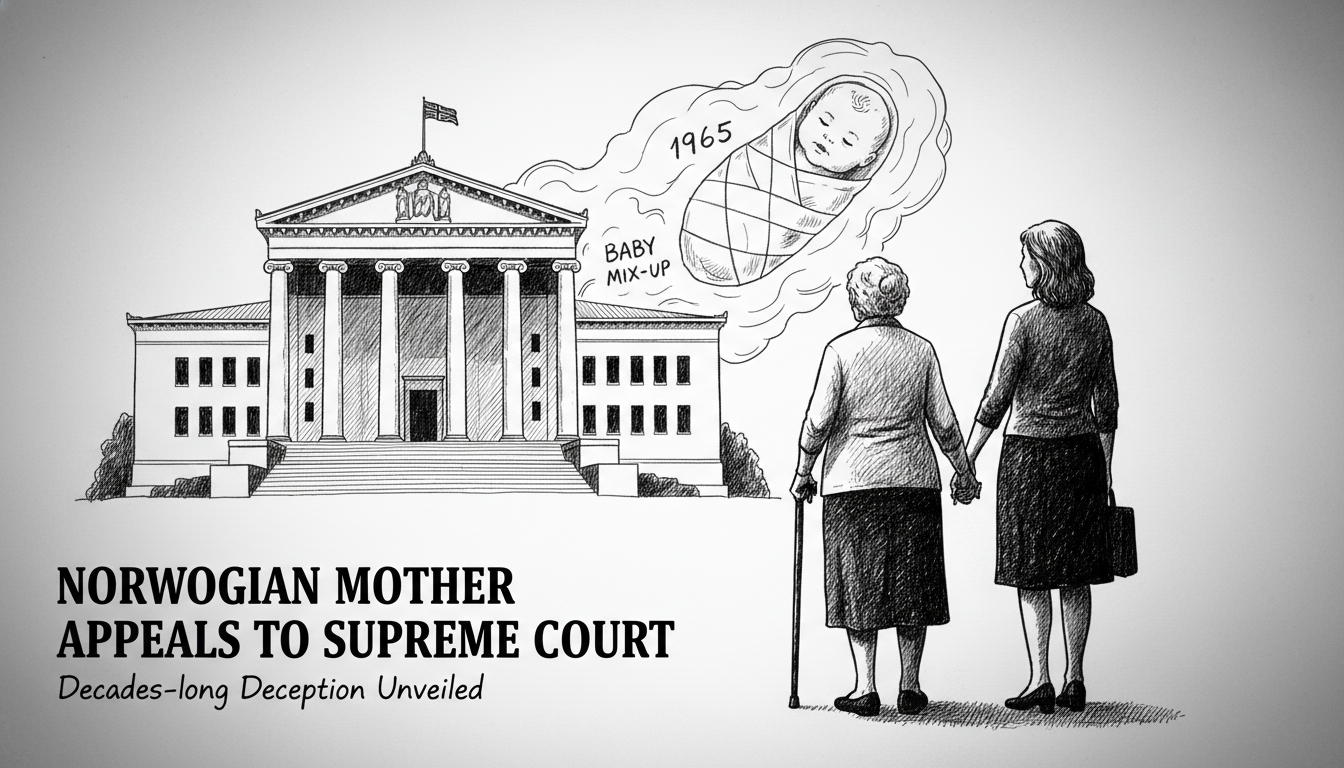A 79-year-old Norwegian woman continues her legal battle after discovering the daughter she raised was not her biological child. Karen Rafteseth Dokken learned three years ago that the baby she brought home from a maternity ward in 1965 had been switched with another newborn. The revelation has transformed her later years into a quest for justice.
Karen has spent her entire life savings on court cases seeking accountability from local authorities and the national government. She lost her initial case in Oslo District Court last year, then suffered another defeat in the Borgarting Court of Appeal. Now she brings her fight to Norway's Supreme Court, arguing human rights violations occurred.
Her lawyer states Karen finds the appeal court's decision deeply unreasonable. The attorney explained her client feels particularly wronged by the state's decades-long concealment of the switching incident. They seek compensation and recognition for human rights breaches, lost childhood experiences, and destroyed family connections.
This case represents one of very few similar incidents documented across Europe. The baby switching occurred at the Eggesbønes maternity ward in Herøy municipality. Authorities discovered the mistake during the 1980s but chose to keep it secret rather than inform affected families.
The daughter Karen raised has also decided to appeal to the Supreme Court. She recently changed legal representation and now benefits from one of Norway's top lawyers. He argues the state bears clear responsibility after knowing about the error for 37 years without disclosure.
Both women find the state's handling particularly difficult to accept. Karen became emotional when describing the situation in court, stating such actions don't belong in Norway's rule-of-law society.
The discovery emerged accidentally through a My Heritage DNA test. Karen has since met her biological daughter, creating one positive development in an otherwise tragic situation. Their first meeting occurred nearly six decades after their separation.
Appeal court judges acknowledged the switching caused significant lifelong consequences for those involved. Yet they concluded the state bears no responsibility for the maternity ward's failures under human rights law.
Government legal representatives maintain the appeal court's ruling was correct and thorough. They will defend this position if the Supreme Court accepts the case.
The original baby switching involved two newborns at the Herøy maternity facility. The error went undetected until 2021. Now one mother and both daughters seek up to 20 million Norwegian kroner in compensation.
While many cases reach Norway's Supreme Court, only a select few receive hearing time. Karen's lawyer remains hopeful, arguing the case's fundamental principles and need for legal clarification improve its chances.
Initially three individuals pursued legal action. Karen's biological daughter has since reached a settlement with government entities.
Family photographs decorate Karen's living room walls, including images of the daughter she raised without biological connection. The display represents the complex family relationships created by the hospital's mistake six decades ago.
This case raises important questions about institutional responsibility and the long-term consequences of medical errors. The Supreme Court's decision to hear the appeal could establish important precedents for similar cases across Norway and beyond.

